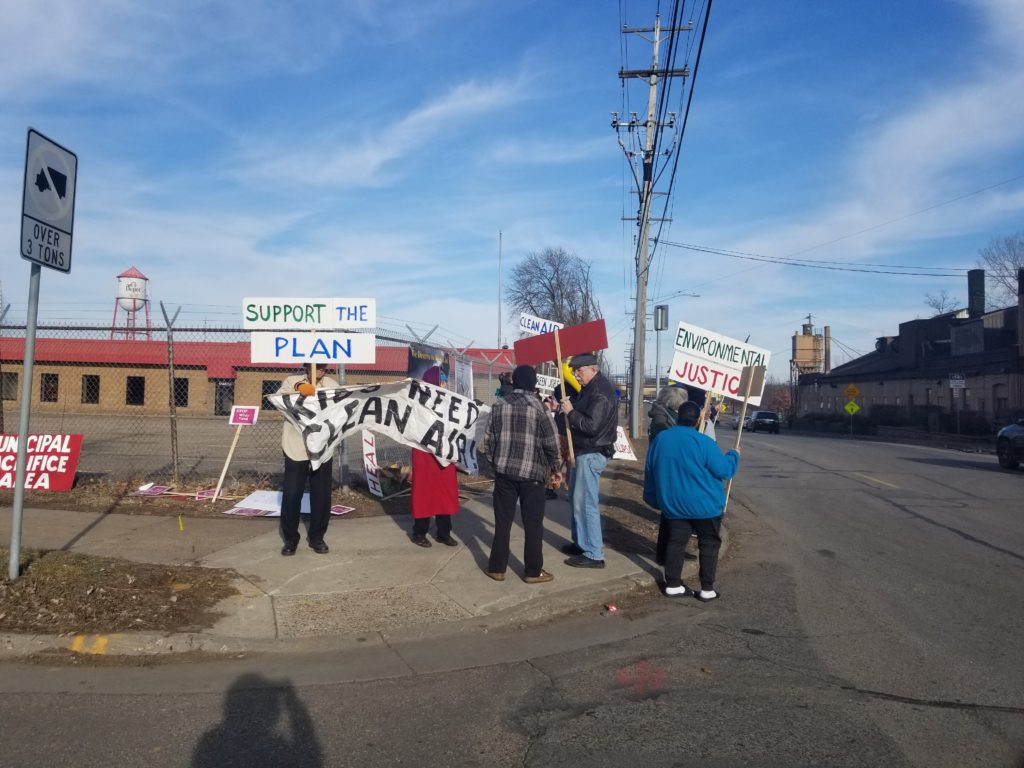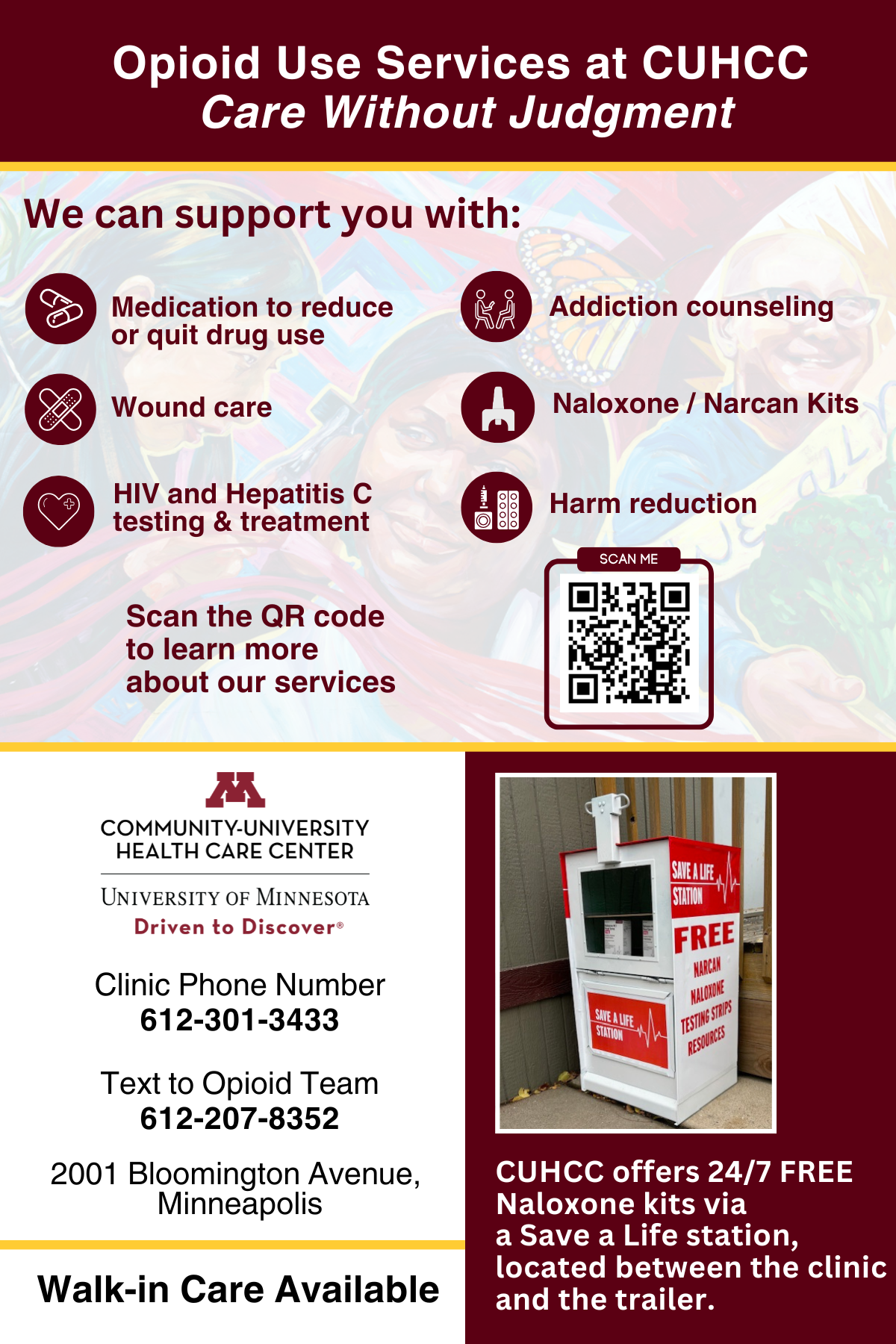By FORMER STATE REPRESENTATIVE KAREN CLARK
and STATE SENATOR PATRICIA TORRES RAY

EPNI Initiative recently at the corner of 28th Street and Longfellow Ave.
PHOTO ELIZABETH CAMPBELL
East Phillips Neighborhood, the lowest-income neighborhood in Minneapolis, where the majority of residents are indigenous and people of color, ironically designated by the city of Minneapolis as a “Green Opportunity Zone” ”” was declared a federal “residential arsenic superfund site” in 2000. Industrial arsenic pesticide contamination was found in more than 500 homes in the area. To compound the situation, the city threatened to use “eminent domain” to take control of a large, prime development site, known as the “Roof Depot,” with the intention of turning it into a storage yard ”” a place to relocate the entire Department of Public Works Water Yards.
The site will be used to store sewer/water pipes, manhole covers, water hydrants and trucks with heavy traffic-produced toxic air pollution. This site promises to be the largest urban yard site in the state, and it will be in the poorest area of our city.
This would never happen in high-income neighborhoods in Minneapolis, but it is happening in East Phillips, and no one seems to care.

“Health Impact Assessment” DENIED by Mpls. City Council and Water Department
A three year “health impact assessment,” publicly funded and completed in 2017, documented severe health disparities due to excessive traffic, lead contamination and industrial pollution in this highly diverse neighborhood. People of color and indigenous people make up almost four-fifths of the population in the Phillips community, which is significantly higher than the city”™s overall demographic distribution. The household income disparity is alarming: 63% of households in this community earn less than $35,000. The median household income in Minneapolis is $63,590.
Minnesota Legislation DENIED by Mpls. City Council and Water Department
The Minnesota Legislature enacted protective community legislation twice because of the severity of the socioeconomic, health and environmental conditions affecting this community. In 2008, one of the writers of this article, former state Rep. Karen Clark, authored an environmental justice law specific to Phillips, and in 2017 State Sen. Jeff Hayden authored State legislation to fund a community residents”™ plan to organize and present their perspectives to the city for future use of the land.
A Phillips Community created and operated “indoor urban farm” with aquaponics, green jobs and job training, cultural markets, a bicycle shop, a youth-led cafe and more is being DENIED by Mpls. City Council and Water Department
Members of the community have done their part. They have been working diligently to design a plan to create a community-run “indoor urban farm” with aquaponics, green jobs and job training, cultural markets, a bicycle shop, a youth-led cafe and more ”” on a corner within the huge and empty former Sears warehouse building called the “Roof Depot.” But the city is not interested in the community”™s proposal.
The City Council has repeatedly voted to overturn the neighborhood”™s proposal and instead turn this prime community development site into the largest urban utility storage facility in the state, with 480 spaces for an employee parking ramp, plus space for 494 commercial vehicles that together will make nearly 2,000 additional trips within this residential neighborhood. Additionally, this site is right across the street from Little Earth of United Tribes Housing, where approximately 1,000 residents, mostly children, reside.
Residents of East Phillips are working hard to organize, educate and fight against the determinants that contribute to the racial, health, economic, social and environmental disparities that are damaging and even killing their children. They have experienced firsthand the deaths of children who suffer from asthma and lead poisoning, but they need residents of other areas of the city to pressure their City Council members and the mayor to reject this harmful proposal to build a storage yard in this space and instead adopt the community proposal ”” which is actually good for the community and all of Minneapolis.
Environmental Justice, Equity, City”™s Engagement Policies DENIED by Mpls. City Council and Water Department
The city of Minneapolis needs to “walk the talk” when it comes to “environmental justice and equity.” The city”™s broad map toward reducing greenhouse-gas emissions may show a small reduction over time, but the increased concentrations of toxic pollutants in poor areas of the city is blatantly racist and unconscionable.
We cannot accept this quietly.









